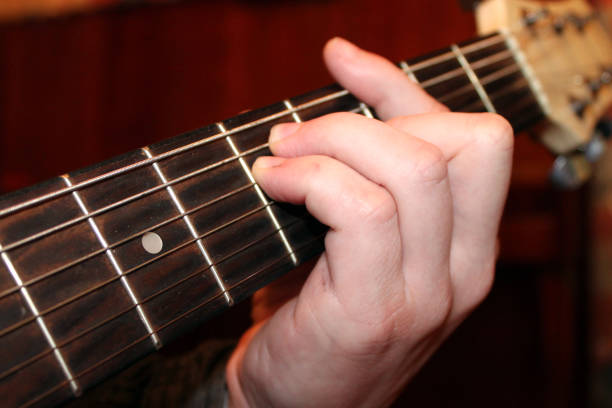Music has long been recognized for its therapeutic effects, offering profound benefits for physical, emotional, and cognitive well-being. Music therapy harnesses the healing power of sound and rhythm to address a wide range of health conditions and enhance overall quality of life. This article explores the principles of music therapy, its therapeutic applications, and how it promotes healing and wellness in diverse populations.

1. Understanding Music Therapy
Music therapy is a clinical and evidence-based practice that utilizes music interventions to achieve therapeutic goals:
- Trained Professionals: Music therapists are trained professionals who assess individuals’ needs and tailor music interventions accordingly.
- Non-verbal Communication: Music provides a means of expression and communication for those who may have difficulty expressing themselves verbally.
- Holistic Approach: Integrates psychological, emotional, physical, and social aspects of health and well-being.
2. Therapeutic Applications
Music therapy addresses various health conditions and enhances quality of life:
- Emotional Well-being: Reduces stress, anxiety, and depression by promoting relaxation and emotional expression.
- Physical Rehabilitation: Improves motor skills, coordination, and physical endurance through rhythmic movement and exercises.
- Cognitive Function: Enhances memory, attention, and cognitive processing in individuals with neurological disorders such as Alzheimer’s disease and stroke.
- Pain Management: Alleviates pain perception and discomfort through distraction and relaxation techniques.
3. Neuroscientific Basis
Research highlights the neurological effects of music on the brain:
- Brain Plasticity: Music stimulates neural pathways, promoting neuroplasticity and brain reorganization.
- Dopaminergic Pathways: Music activates reward centers in the brain, releasing dopamine and enhancing mood and pleasure.
- Emotional Processing: Music engages limbic system structures involved in emotional regulation and memory.
4. Types of Music Interventions
Music therapy incorporates various techniques and interventions tailored to individual needs:
- Active Listening: Engaging in music listening sessions tailored to evoke specific emotional responses or relaxation.
- Improvisation: Spontaneous creation of music to encourage creativity, self-expression, and emotional release.
- Songwriting: Writing and composing songs to express feelings, thoughts, and personal experiences.
- Group Drumming: Participatory drumming sessions to promote synchronization, social interaction, and rhythmic coordination.
5. Populations Benefiting from Music Therapy
Music therapy is beneficial for diverse populations, including:
- Children: Enhances developmental skills, communication, and social interaction in pediatric settings.
- Adults: Supports mental health, stress management, and emotional well-being in clinical and community settings.
- Elderly: Improves cognitive function, memory recall, and quality of life in geriatric care and dementia care settings.
6. Evidence-Based Benefits
Research underscores the efficacy of music therapy interventions:
- Meta-analyses: Studies demonstrate significant reductions in anxiety, depression, and pain perception across various patient populations.
- Clinical Trials: Randomized controlled trials validate music therapy’s effectiveness in improving motor skills, cognitive function, and emotional regulation.

7. Integration into Healthcare Settings
Music therapy is increasingly integrated into healthcare environments:
- Hospitals and Clinics: Used in oncology, palliative care, mental health, and rehabilitation settings to complement medical treatment.
- Schools and Special Education: Enhances learning, communication, and emotional development in educational settings.
- Community Programs: Provides support and therapy in community-based initiatives, fostering social inclusion and well-being.
8. Professional Training and Accreditation
Music therapists undergo specialized training and certification:
- Education: Graduate programs accredited by the American Music Therapy Association (AMTA) or the Certification Board for Music Therapists (CBMT).
- Clinical Supervision: Supervised clinical internships and ongoing professional development to maintain certification.
9. Global Perspectives and Cultural Diversity
Music therapy incorporates diverse musical traditions and cultural practices:
- Cross-cultural Adaptation: Adapting music therapy techniques to resonate with diverse cultural beliefs and practices.
- Global Initiatives: International collaborations promote research, education, and practice standards in music therapy worldwide.
10. Future Directions and Research
Continued research explores new applications and therapeutic benefits of music:
- Technology Integration: Innovations in music technology enhance accessibility and personalized music therapy interventions.
- Interdisciplinary Collaboration: Collaborative research with neuroscience, psychology, and medicine advances understanding of music’s therapeutic mechanisms.

Conclusion
Music therapy exemplifies the transformative power of music in promoting healing, well-being, and quality of life across diverse populations. By harnessing sound, rhythm, and creative expression, music therapists provide holistic interventions that complement traditional medical care and support emotional, cognitive, and physical rehabilitation. As a scientifically validated practice, music therapy continues to evolve, offering innovative approaches to enhance health outcomes and enrich the human experience through the universal language of music.
In Summary
Music therapy harnesses the healing power of music to address a wide range of health conditions and enhance quality of life. Through evidence-based interventions such as active listening, improvisation, and group drumming, music therapists promote emotional expression, cognitive function, and physical rehabilitation. As an integrative practice, music therapy bridges cultural diversity, fosters interdisciplinary collaboration, and advances understanding of music’s therapeutic benefits in healthcare and community settings.

